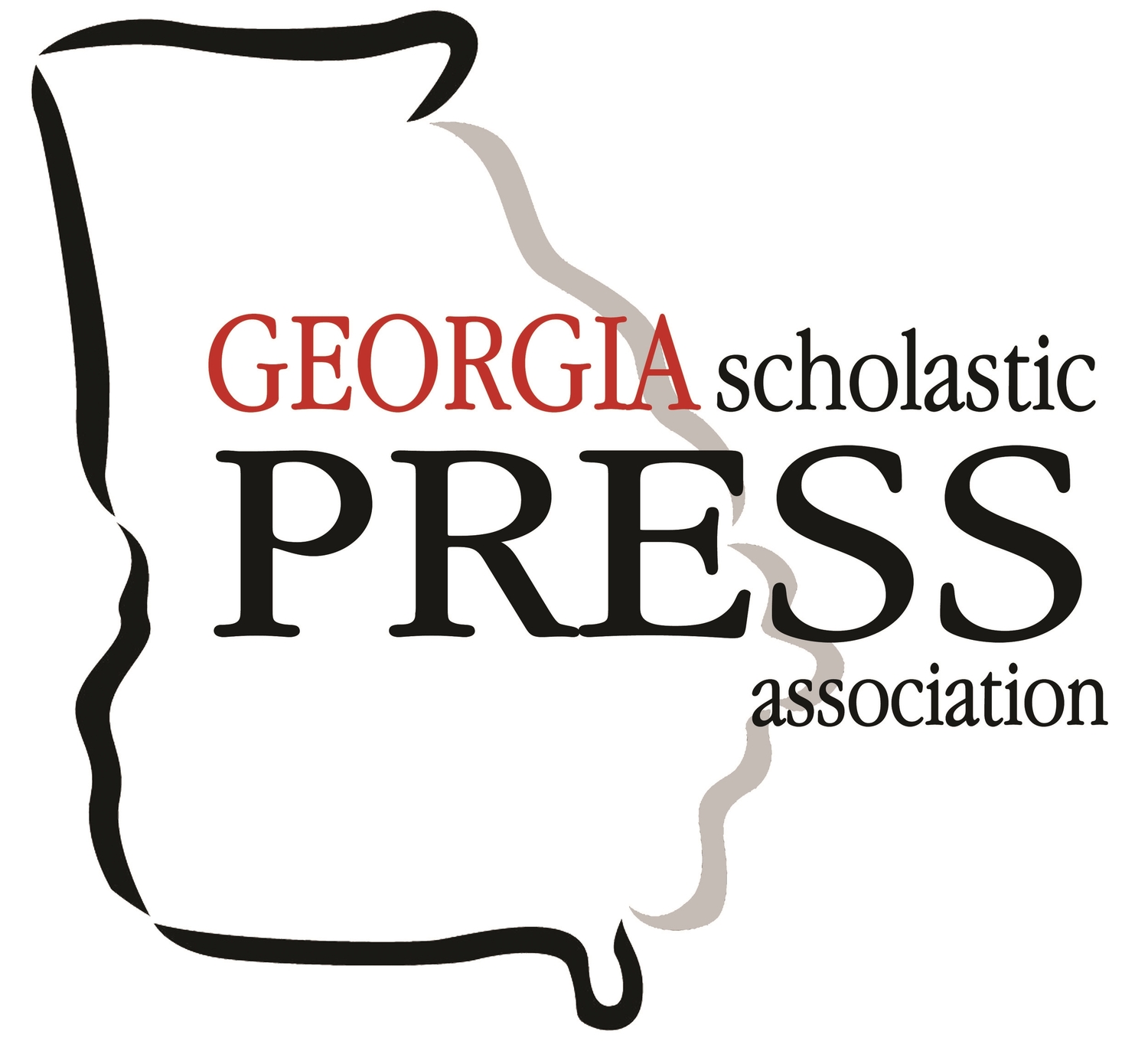A Young Reporter's Dream: GSPA's Fall Conference
/Students speak with Dr. Joe Dennis of Piedmont College during on-site critiques at the Georgia Scholastic Press Association (GSPA) Fall Conference on Thursday, Sept. 19, 2019. High school publication leaders had the opportunity to receive feedback from media professionals about their newspapers, news websites and newsmagazines in addition to attending sessions. GSPA hosted 40 sessions during the conference. Photo: Sarah Freeman/UGA Grady College
By Isabelle Mokotoff
As a rookie journalist just dipping my toes into all opportunities that the Georgia Scholastic Press Association (GSPA) offers, pretty much everything at its Fall Conference came as surprise to me. I am no stranger to the traditional, lackluster school field trip. With chagrin, I recount awful excursions to the Okeefanokee Swamp or the Lost Colony of Roanoke. (Spoiler alert: both trips ended in dozens of bug bites and mountains of homework, respectively of course). So, having suffered through my fair share of unbearable school outings, I prepared myself to be, at best, underwhelmed.
I could not have missed the mark further.
Simply put, GSPA’s Fall Conference proved a young reporter’s dream. Kids buzzed around with notepads and pens in tow. Friends and strangers alike swapped and perfected stories, eager to take the best few home to share with new audiences. And, of course, after Session 2 let out, thousands of teenagers swarmed downtown Athens in the pursuit of a good meal and an even better time.
I guess word-nerds really do know how to party.
I bonded with these word-nerds over our love for the convention. And, as any good reporter would do, I snagged some interviews along the way:
Mary Jane Gagliano, a junior at Starr’s Mill High School in Fayette County, Georgia, took advantage of every opportunity with which Fall Conference provided her as a first-time attendee. She jotted down any and all tidbits of feedback for her school’s newspaper website between conversations with new friends and creation of TikTok videos sure to make others laugh. Gagliano said that she joined her school’s newspaper , The Prowler, to build upon her older sister’s journalistic legacy and “forge her own path in the field.” Gagliano remains insatiably curious about the world around her—a clear affirmation of her scholastic prowess.
Milton High junior Nicki Gomez attended GSPA Fall Conference for the second time this year. She sheepishly admitted that, in part, she attended the conference to miss school. But, Gomez also retained a genuine interest in showing her friend Allison “the ropes” of journalism and thought that GSPA’s Fall Conference provided the perfect opportunity to do so. Gomez mentioned that she appreciated how the sessions refreshed her memory on journalism fundamentals. We both agreed, most of journalists take reporting fundamentals for granted. Polishing her “writing chops,” Gomez continued, emerged as one of the most important things she did at GSPA’s Fall Conference.
As for my most valuable take-aways from the conference, I compiled a list of favorite pro-tips below. (Big shout out to my lecturers—Professor Lori Johnston , Andy Johnston and Ms. Sonya Green—for taking time out of busy schedules to share expertise with us high school students)!
1. Different situations require different interview formats. For example, a face-to-face interview is always preferred, if possible, because when doing so, an interviewer typically picks up on visual clues which can change the trajectory of one’s article. Also, don’t interview over email unless the email is only comprised of one or two follow-up and clarification questions. You don’t want an interviewee’s critical message to be lost without tone of voice or facial expressions to bolster their perspective.
2. When writing down someone’s first and last name, make sure to get an audio of the spelling and a physical piece of paper where the name is written. It may sound crazy, but sometimes interviewees get nervous during an interview and spell or write their name incorrectly. This is a way to check “all the boxes” and ensure you use the correct spelling of anyone’s name.
3. Don’t survey, interview! Let the conversation flow naturally. Your article will seem more authentic if you do.
4. Silence can be golden in radio/podcast interviews. Although the pauses may feel unnatural and awkward, it lets the most important parts of any interview sink into the brain of the listener.
5. If dealing with difficult or unsavory interviewees, humor is your best bet to turn the interview around. A quick joke or pun can allow you to change the course of the interview for the better while still remaining lighthearted.
All in all, take my word for it: GSPA’s Fall Conference definitely made up for the hours-long bus ride. I will be in attendance at Spring Conference and hope to see you there!




